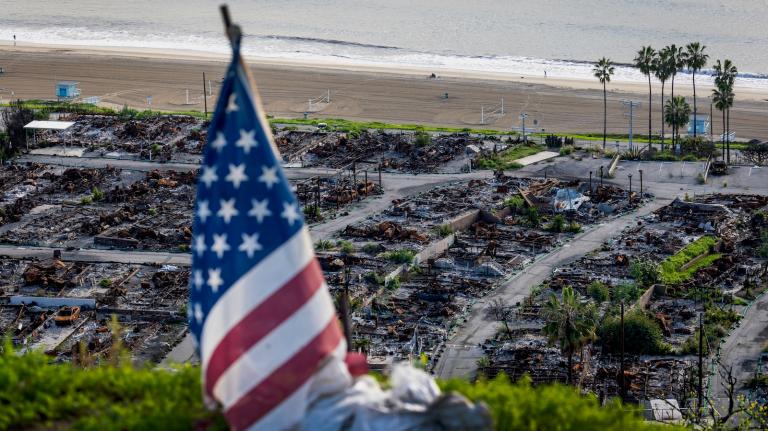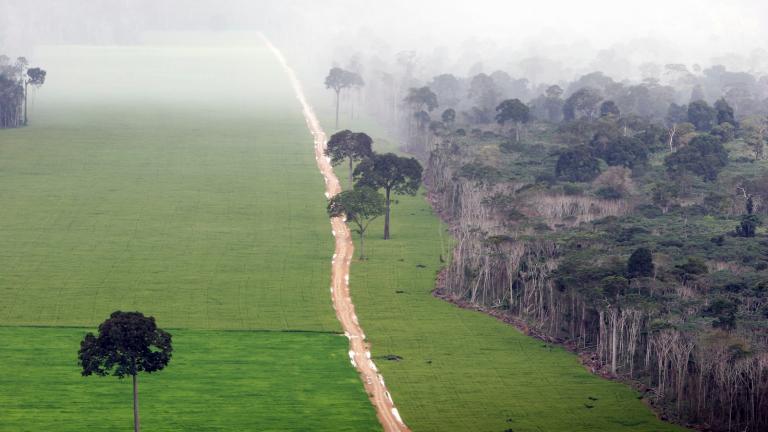 I believe in climate change. I ride my bike everywhere, I work at a solar company, I buy organic and local when I can. I am young, liberal, and idealistic. But I’m not an environmentalist. And I’m not alone.
I believe in climate change. I ride my bike everywhere, I work at a solar company, I buy organic and local when I can. I am young, liberal, and idealistic. But I’m not an environmentalist. And I’m not alone.
Over the past decade, the number of Americans who support the environmental movement has declined, with supporters increasingly split along partisan lines. On the other hand, most Americans strongly support developing clean energy, believe that global warming is an important issue, and regularly engage in behaviors that are good for the environment. At least that’s what we’ve told the researchers.
Gallup recently found that 83 percent of Americans want more government support for clean energy. Yale and George Mason University researchers found [PDF] that 72 percent of Americans believe that global warming should be a government priority. And another Gallup poll found that three out of four Americans regularly engage in environmentally friendly behaviors.
Apparently, many Americans are aligned with the environmental movement’s goals. We just don’t align ourselves with the movement itself.
So what’s wrong with the environmental movement? According to its more morose critics (who include a few of its former leaders), it’s dead. In my mind, it just hasn’t changed to fit the times.
I am a child of the environmental movement, the granddaughter of avid hikers who helped protect wild spaces and the daughter of ecologically minded parents who taught me the Clean Air Act along with my ABCs. So it is with all due respect that I would like to inform my elders that their brand of environmentalism simply isn’t working anymore.
The environmentalism of my grandparents’ generation was focused on preserving pristine wilderness, free from human interference. For my parents, environmentalism was all about the legislative victories.
In the 21st century, with 7 billion people to clothe, feed, and shelter, there’s little environment left that we haven’t altered. We’re changing the natural world and we will continue to do so. When the trade-off is between survival and preserving the pristine, survival will always prevail.
Of course, if we continue to degrade natural habitat at our current rate, we’ll be down to half the species of plants and animals that we used to have, and that world would be hard for all of us to survive in. And yet protecting wildlife is a hard argument to make in many of the pristine, undeveloped parts of the world where the local people live in poverty and rely on their natural resources to make ends meet.
At the same time, there are plenty of ways to survive in a more ecological manner. As I found out when I lived in Niger, one of the poorest countries in the world, environmental solutions catch on quick when they fit the needs of the local population. The women in my village loved getting more efficient cookstoves, not because they saved trees but because they saved hours spent collecting wood.
This isn’t to say that we can’t and shouldn’t take care of wild spaces and creatures. But we need to recognize that often the best way to protect wild places is to take care of people in a way that leaves room for the wild as well. There’s a reason that many environmental groups have found that the best way to stop poaching is to employ poachers as eco-tourism guides. When we make the economics align so that survival equals protecting the environment, good things happen for people and planet.
So what about legislative-focused environmentalism? Well, ridiculous politicking in Washington has turned even the most mundane issues (birth control?) into partisan fodder. This has resulted in only a handful of significant environmental victories in my lifetime, with all the signs pointing toward fewer to come.
On the international level, I’ll admit that I too was deluded by the promise of a regulatory solution. I thought President Obama would swoop into the 2009 U.N. climate conference in Copenhagen with a magic pen that would sign away carbon emissions — an act that the rest of the world would be sure to follow. It didn’t happen.
Where does all this leave the environmental movement?
The best way to grow a movement has always been to aim for inclusion and lead by inspiration. Many in my generation find promise in people-centered solutions to environmental problems that have gained traction in the United States under the catchall description of “green jobs.” Leaders of this movement include Van Jones, Majora Carter, Billy Parish, and many others who have made the case that being green isn’t just a way to protect the environment, it’s a way to revitalize our economy, culture, and communities.
Environmentalists take note: This idea resonated. It resonated for the same reason that so many “environmentalists” jumped ship after the recession. When we’re in survival mode, as so many Americans are right now, the last thing we want is something that will impede our fragile economic growth. Inspire us with the idea that environmental solutions will create jobs, give us some very valid reasons to believe it’s true, and we’ll jump on board. It might be a different ship, but the destination is the same.
So no, I’m not an environmentalist. I’m a rational human being, just like most Americans who live environmental lives. If we’re truly going to create a more sustainable and equitable economic system, we need to look past the divisions and understand that most of us are on the same side, regardless of the labels we place on ourselves, or choose not to.




